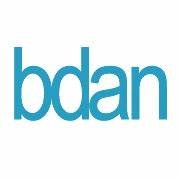The Bank Directors Association of Nigeria (BDAN) has urged the federal government to review the recently introduced 70 percent windfall tax on profits derived from foreign exchange transactions by banks.
The tax, which is set to be enforced from 2023 to 2025, has sparked concerns within the banking community, particularly regarding its timing and potential impact on ongoing recapitalisation efforts.
In a recent statement signed by its Chairman, Mr. Mustafa Chike-Obi, BDAN acknowledged the government’s revenue generation objectives but described the levy as excessive and poorly timed.
The association stressed that the high tax rate could hinder growth and innovation in the banking industry, leading to adverse effects on the quality of financial services and the wider economy.
Mr. Chike-Obi emphasised the importance of dialogue between the government and key stakeholders before implementing significant policy changes. He expressed concerns over the lack of clarity surrounding the tax, particularly on whether it would be integrated with existing taxes such as company income tax (CIT) and the Asset Management Corporation of Nigeria (AMCON) levy.
Additionally, the BDAN sought clarification on how losses from foreign exchange transactions would be handled.
The BDAN further noted that Nigerian banks are already facing a heavy tax burden and called for the consolidation of various taxes and levies imposed on the sector. The association urged the National Assembly to engage in further discussions to ensure that any policy changes strike a balance between revenue generation and the health of the banking sector.
The body also praised the Central Bank of Nigeria (CBN) for its efforts in stabilising the banking sector and reaffirmed its commitment to working collaboratively with regulators and government entities to find mutually beneficial solutions.




